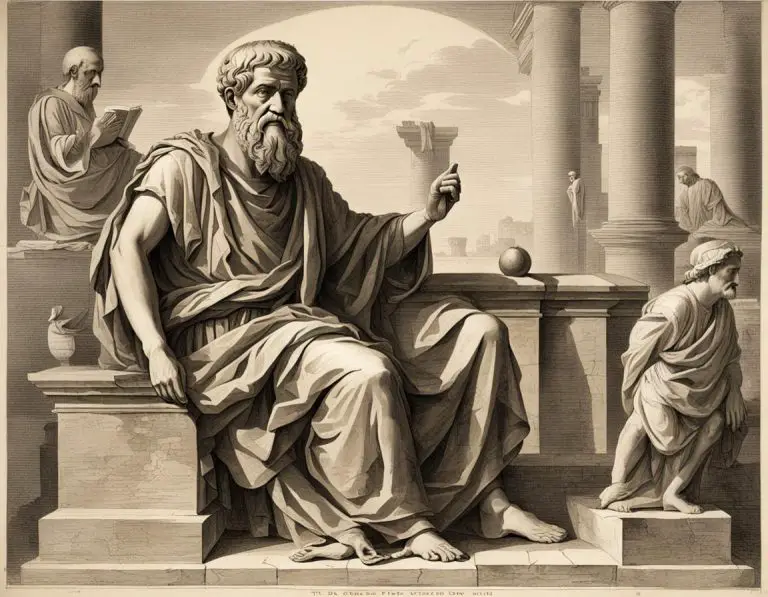Implications of the Tripartite Soul in Ethics
The Tripartite Soul, as elucidated by Plato, plays a pivotal role in shaping ethical behavior. By breaking down the soul into three distinct components – reason, spirit, and appetite – Plato provides a framework for understanding the complexities of human nature. This division allows individuals to discern between rational thought, emotional impulses, and base desires, guiding them towards making virtuous decisions in their daily lives.
Through the lens of the Tripartite Soul, ethical dilemmas can be approached with a deeper understanding of one’s inner workings. Reason, positioned at the helm of the soul, serves as the guiding force that steers individuals towards moral conduct. It is through the harmonious balance of reason, spirit, and appetite that one can strive towards achieving virtue. By acknowledging the inherent conflict between these facets of the soul, individuals can navigate moral quandaries with clarity and purpose, ensuring that their actions are aligned with the principles of goodness and justice.
How Virtue Arises from Inner Harmony
Virtue, according to Plato, is not merely a set of behaviors or actions but rather an inherent quality that stems from the harmony within the tripartite soul. When the rational, spirited, and appetitive elements of the soul are in balance and working together harmoniously, virtue naturally emerges. This inner harmony allows individuals to make decisions that are guided by reason and aligned with moral principles, leading to virtuous actions.
Plato believed that achieving virtue was not solely about external rules or societal expectations, but about cultivating a well-balanced soul through introspection and self-awareness. By fostering a sense of inner harmony and striving to align one’s desires with reason, individuals can develop the virtues of wisdom, courage, moderation, and justice. This process of self-reflection and inner alignment is essential in Plato’s ethical framework, as it enables individuals to live a virtuous life in accordance with the ultimate good.
Application of Plato’s Theory in Education
Plato’s theory of the tripartite soul provides a foundational framework for understanding the complexities of human nature, which is crucial in shaping educational practices. By recognizing the distinct elements of reason, spirit, and desire within each individual, educators can tailor their teaching methods to promote holistic growth and development. In education, this theory serves as a guide for nurturing not only cognitive abilities but also moral character and emotional intelligence.
Applying Plato’s tripartite soul theory in education involves fostering a harmonious balance among the rational, spirited, and appetitive aspects of the soul. Through a comprehensive approach that integrates intellectual stimulation, character development, and self-discipline, educators can help students achieve inner equilibrium. By addressing each dimension of the soul, teachers can empower learners to make informed decisions, cultivate virtues, and lead a fulfilling life based on wisdom and self-awareness.
Fostering a WellBalanced Soul through Learning
Fostering a well-balanced soul through learning is a fundamental aspect of Plato’s philosophy. By engaging in a lifelong pursuit of knowledge and wisdom, individuals can strive for harmony within themselves. Education plays a crucial role in shaping the three parts of the soul – reason, spirit, and desire – towards a unified and virtuous existence. Through the cultivation of intellectual and moral virtues, individuals can navigate their inner conflicts and achieve a state of inner balance.
Plato believed that an individual’s soul could be transformed through the power of education. By exposing oneself to diverse perspectives, critical thinking, and ethical teachings, one can refine their character and align their desires with reason. Through disciplined learning and self-reflection, individuals can harmonize the competing elements of their soul and aspire towards a harmonious integration of virtues. Plato’s emphasis on education as a means to foster a well-balanced soul underscores the transformative potential of intellectual and moral development in achieving a flourishing life.
Critiques and Challenges to the Tripartite Soul
Critiques and challenges to Plato’s theory of the tripartite soul have been prevalent among philosophers and scholars throughout history. One common critique revolves around the oversimplification of the human psyche into three distinct parts: reason, spirit, and appetite. Critics argue that such a division fails to capture the complexity and intricacies of human behavior and decision-making processes, which are often influenced by a multitude of factors beyond these three categories. Additionally, some critics suggest that the hierarchical structure of the soul, with reason placed above spirit and appetite, may not accurately reflect the dynamic and interconnected nature of these components within an individual.
Another challenge to Plato’s theory of the tripartite soul lies in its applicability to modern psychological and philosophical frameworks. Critics argue that the ancient Greek understanding of the soul may not align with contemporary notions of consciousness, selfhood, and mental processes. Moreover, the strict delineation between reason, spirit, and appetite may not adequately address the complexities of modern human experiences and moral dilemmas. Despite these critiques and challenges, the tripartite soul remains a foundational concept in Platonic philosophy, serving as a basis for understanding human nature, ethics, and the pursuit of a virtuous life.
Analyzing Modern Perspectives on Plato’s Theory
Modern perspectives on Plato’s tripartite soul theory offer a blend of admiration and critique. Many contemporary scholars appreciate the depth of Plato’s insights into human psychology and ethics. They acknowledge the enduring relevance of his ideas in understanding the complexities of human nature and behavior. However, some critics challenge the simplistic categorization of the soul into three distinct parts, arguing that it oversimplifies the intricate workings of the human mind.
In the realm of psychology, some scholars draw parallels between Plato’s tripartite soul and modern theories of the unconscious mind. They see potential connections between Plato’s rational, spirited, and appetitive elements and concepts like the id, ego, and superego in Freudian psychology. These comparisons offer a fresh perspective on how ancient philosophical ideas can intersect with contemporary psychological frameworks, enriching our understanding of both past and present theories on human thought and behavior.
Related Links
What Is the Tripartite Soul in Plato’s Philosophy
What You Need to Know About The Philosopher King

